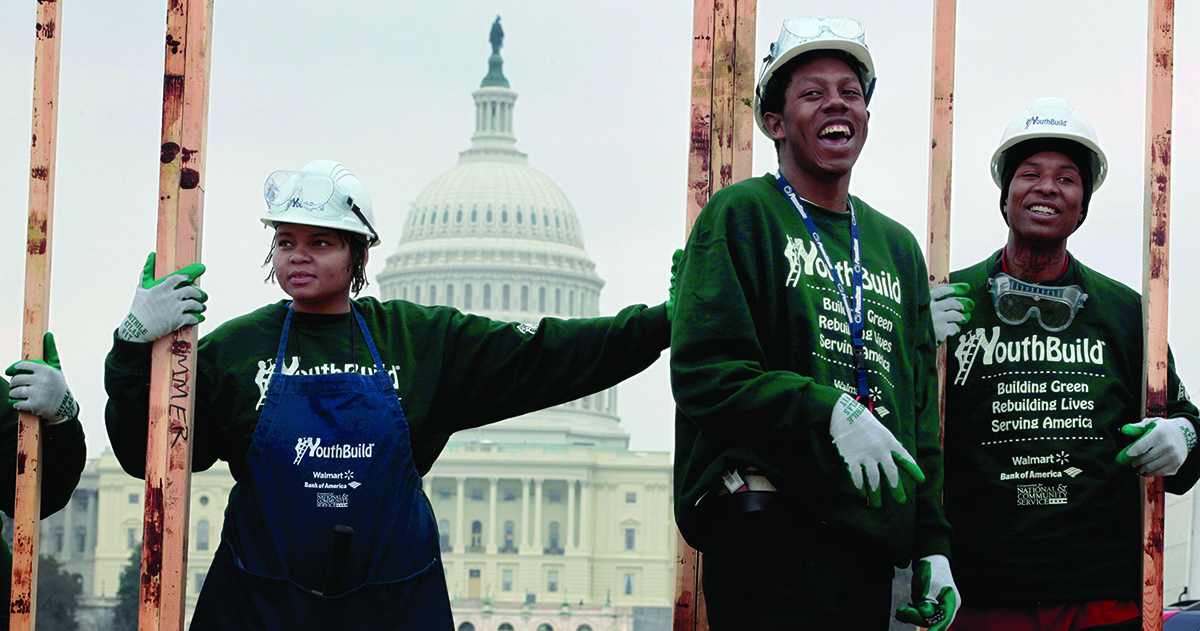Developing Positive Young Adults
Lessons from Two Decades of YouthBuild Programs

Globalization and technological advances have increased the importance of a high school degree, academic skills, and career preparation for achieving labor market success. Fortunately, the high school graduation rate has increased in recent years, but high school dropouts and others with few skills still face dire circumstances. They are disproportionately disconnected from work, more likely to live in chronic poverty, and at greater risk for criminal behavior.
YouthBuild strives to help. With nearly 300 affiliated sites nationwide, the program offers academic support, job skills training, counseling and case management, life skills and leadership training, and opportunities for community service. Most important, the program aims to deliver these services in a culture that focuses on positive youth development — empowering participants to take responsibility for their lives and their communities by focusing on their strengths and potential for leadership.
A growing body of evidence suggests that programs that actively incorporate such youth development principles and practices, fostering positive identity, resilience, and emotional and moral competence, are more effective in decreasing negative outcomes and increasing young people’s chances of long-term success. While quantifiable measures such as educational attainment or increased earnings are important to gauge the impact of a program like YouthBuild, it is equally essential to understand the less tangible outcomes that may predict success in the long run.
This report presents findings from two separate research efforts that shed light on the process of youth transformation and identity development in YouthBuild. The first paper, written in 1997 by Ronald F. Ferguson and Jason Snipes, is based on a formative evaluation of early YouthBuild programs between 1991 and 1994. In that evaluation, participants described themselves as more efficacious, optimistic, and morally upright after participating in the program for a year. Young adults whom Ferguson and Snipes interviewed spoke often of deep personal transformations not only in their own identities but also in relationships with friends, family, and community. The second paper presents the findings from a 2014 survey of YouthBuild program directors across the country and shows that the themes Ferguson and Snipes set forth continue to resonate.
Today, like 20 years ago, the vast majority of YouthBuild participants come from communities where people struggle to meet everyday needs. Trust is often a scarce resource. Early negative experiences related to poverty and marginalization — including bad public schools, complex family arrangements, housing instability, and violence in the community — engender feelings of mistrust, doubt, and inferiority among many who find their way to YouthBuild. Program culture promotes caring yet demanding relationships between staff members and participants. Staff members strive to persuade participants that they are able and worthy to achieve life success. Even if jobs or other opportunities following graduation are scarce, the program directors whom we surveyed report that the program broadens participants’ horizons — changing perspectives, behaviors, and lifestyles. Continued supports in the months after YouthBuild, they stressed, are important to help graduates stay on track.







